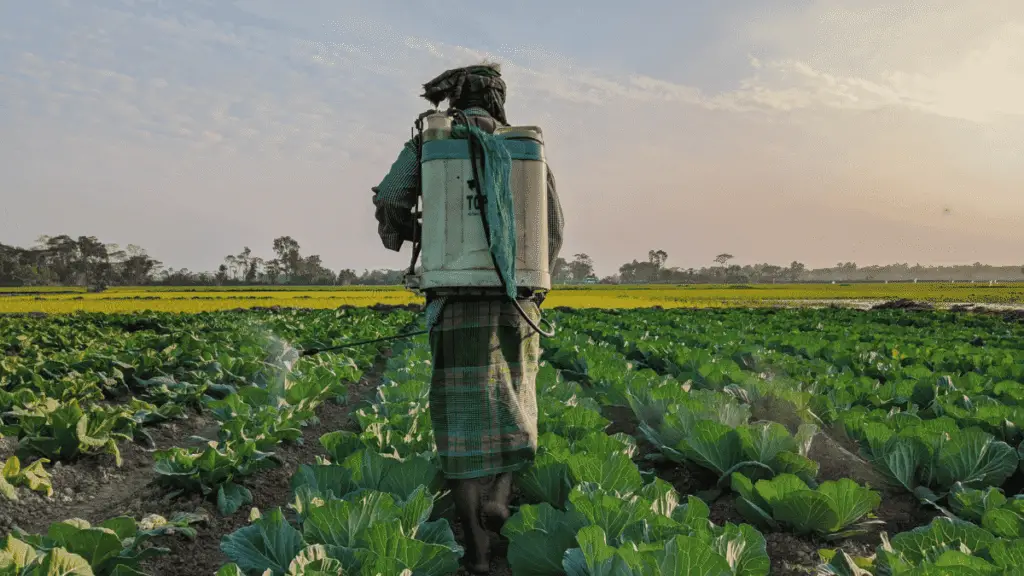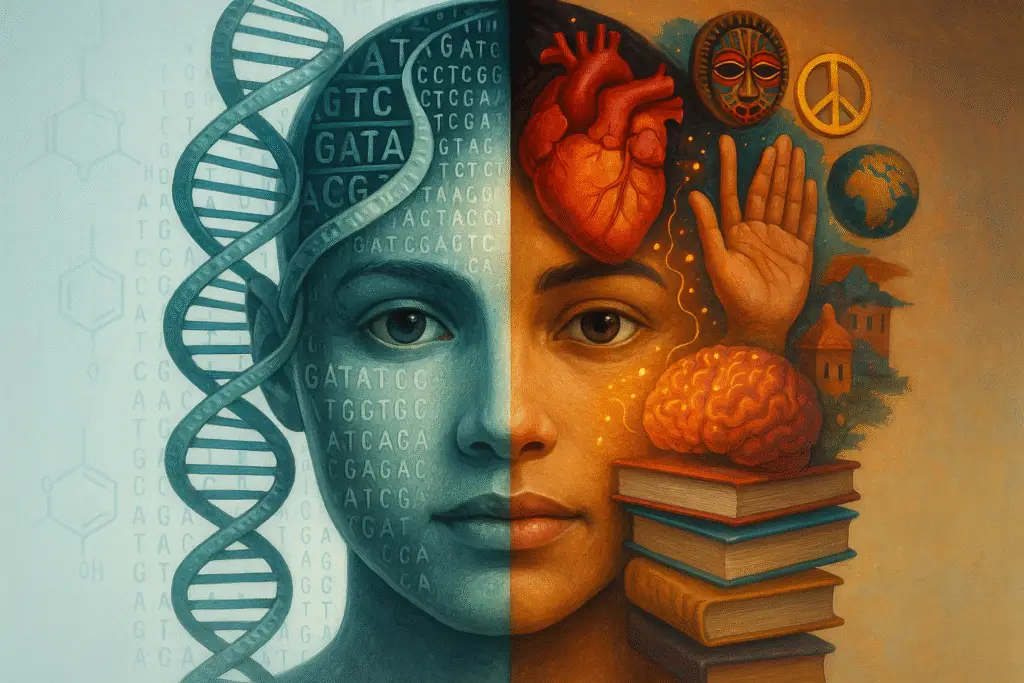According to multiple global health surveys, 80% of conventionally grown produce, including vegetables and fruits, carries pesticide residues and nitrogen-rich fertilisers. These chemical pesticides and fertilisers can drastically change soil chemistry, which can impact our genetic health and damage our DNA.
Yes, our genes are at stake here.
Just like the food we order from outside makes us think twice about its healthiness, today even the food we are making at home can be as dangerous as that chinese takeaway.
Those shiny tomatoes, perfectly green cucumbers and bright red bell peppers all look so fresh and fascinating. The vegetables like cauliflower, cabbage, and spinach were once truly seasonal, but now you’ll see them all year round.
All this is made possible by chemical farming. To boost yield, protect crops from pests, and increase profit, farmers worldwide rely heavily on chemical fertilisers and pesticides.
Related article: How Overuse of Common Medicines Harm Your Genetic Health.
Key Topics:
Chemical farming and DNA damage
These chemicals not only force crops to grow faster and out of season but also silently damage our DNA.
The reality is harsh: these chemicals that are protecting the crops from the pests are ruining the same crops for our consumption.
We think these are just chemicals that are used to keep the pests away, but if they enter our human body either through food, water, or inhalation while spraying, they can start a chain of reactions inside our body.
Many pesticides contain harmful compounds like organophosphates, organochlorines, and carbamates. These compounds are known to be genotoxic.
Even fertilisers often contain nitrates and heavy metals like cadmium. Once ingested, nitrates can convert into nitrosamines in the body, and these compounds are highly genotoxic and are known to cause DNA damage and even stomach cancer.
And the shocking part is not only that the consumers who are eating these vegetables pay the price, but the farmers who handle these chemicals daily are also at risk.
In this article, we will explore how pesticides and fertilisers used during farming can damage our DNA, as well as how they can be harmful to farmers exposed to these chemicals daily.
We’ll look at some research papers and articles showing us the evidence of the toxicity of these chemicals.
Related article: How Regular Exercise Benefits Your Genetic Health.
Recent Research
A striking study published in the Journal Environmental Research and Public Health from Chile explored the toxicity exposure of the farm workers who handle pesticide mixtures every day. In this study, researchers compared blood samples of these farmers with those of people from the city with no such exposure.
The results were as expected; the farmers showed nearly four times more DNA damage than the people from the city. Their blood cells carried broken DNA fragments and chromosomal abnormalities.
And the damage didn’t stop there. The woman from the exposed group had a shocking increase in reproductive problems, such as miscarriages and birth defects.
Glyphosate, a very important herbicide that is widely used in agriculture, was found to be genotoxic for humans in a study published in the Journal of Food and Toxicology. The scientists set tests to check whether it can damage DNA and alter DNA methylation in human peripheral blood mononuclear cells grown in the lab.
Researchers found that glyphosate caused measurable DNA strand breaks at higher concentrations. And when the chemical was removed, cells repaired the strand breaks, suggesting the damage was transient.
Even the IARC has classified glyphosate as a probable carcinogen.
In this study, the concentrations were very high, so it doesn’t prove harm at everyday dietary exposures. Still, it illustrates a biological capacity for DNA damage and cancer-relevant epigenetic shifts that support taking a precautionary approach to chronic exposure.
Now, we cannot stop eating vegetables, so what should we do to avoid ingestion of these harmful chemicals?
- Wash the vegetables and fruits thoroughly.
- Peel whenever possible because most of the residues stay on the outer skin. Peeling cucumbers, apples, and similar products reduces the risk.
- Buy vegetables in their natural season to avoid the likelihood of excessive chemicals.
- Support organic farming. Yes, it may be costly, but our DNA is at stake.
- Eat a variety of foods to reduce repeated exposure to the same chemicals.
- Awareness programmes for the farmers so that they minimise the use of these synthetic chemicals and not only save us but also themselves and their families.
Wrapping up
Vegetables are the backbone of our diet, so we cannot stop eating them, but we can make conscious choices like supporting seasonal and organic produce, washing and peeling so that the exposure remains minimal.
The bigger, greener and fast-growing vegetables are a cocktail of harmful compounds that can damage our DNA.
Because in the end, it’s not about the quantity, it’s about the quality. Some simple mindful choices about what we put in our bodies can ensure the safety of our genes, our health and our future generations.
Resources:
Kwiatkowska, Marta, et al. “DNA Damage and Methylation Induced by Glyphosate in Human Peripheral Blood Mononuclear Cells (in Vitro Study).” Food and Chemical Toxicology, vol. 105, 1 July 2017, pp. 93–98, www.sciencedirect.com/science/article/pii/S0278691517301497, https://doi.org/10.1016/j.fct.2017.03.051.
Landeros, Natalia, et al. “Genotoxicity and Reproductive Risk in Workers Exposed to Pesticides in Rural Areas of Curicó, Chile: A Pilot Study.” International Journal of Environmental Research and Public Health, vol. 19, no. 24, 10 Dec. 2022, pp. 16608–16608, https://doi.org/10.3390/ijerph192416608. Accessed 11 Nov. 2023.


